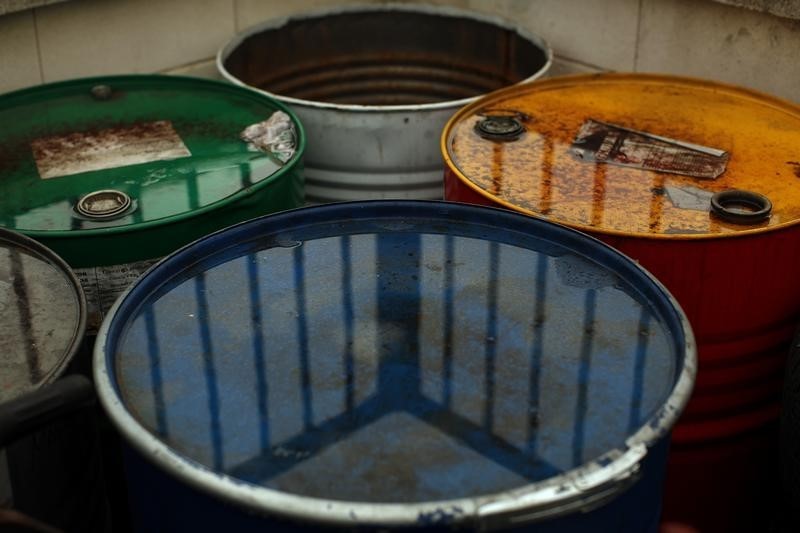Investing.com - Oil prices plunged on Tuesday, after the International Energy Agency warned that oil markets would likely remain oversupplied next year due to a slowdown in demand.
The IEA had previously expected the market to show no surplus in the second half of this year.
In its monthly report released earlier in the session, the IEA sharply cut its forecast for global oil demand for this year and the next amid what it called “wobbling” Asian demand.
The Paris-based agency downgraded its global oil demand predictions by about 100,000 barrels a day for this year to 1.3 million barrels a day. It also reduced the forecasts by about 200,000 barrels a day in 2017.
The IEA's latest comments follow a surprisingly bearish outlook from OPEC on Monday.
On the ICE Futures Exchange in London, Brent oil for November delivery fell by more than 2% to hit a daily low of $47.18 a barrel. It was last at $47.70 by 9:35AM ET (13:35GMT), down 62 cents, or 1.28%.
Elsewhere, crude oil for October delivery on the New York Mercantile Exchange slumped 87 cents, or 1.88%, to $45.42 a barrel.
Market players shifted their focus to weekly data from the U.S. on stockpiles of crude and refined products.
Industry group the American Petroleum Institute is due to release its weekly report at 4:30PM ET (20:30GMT) later on Tuesday. Official data from the Energy Information Administration will be released Wednesday.
Meanwhile, oil traders continued to weigh prospects that major oil producing nations will freeze output to support the market when they meet later this month.
The Organization of the Petroleum Exporting Countries, led by Saudi Arabia and other big Middle East crude exporters, will meet non-OPEC producers led by Russia at informal talks in Algeria between September 26 and 28.
Chances that the upcoming meeting would yield any action to reduce the global glut appeared minimal, according to market experts. Instead, most believe that oil producers will continue to monitor the market and possibly postpone freeze talks to the official OPEC meeting in Vienna on November 30.
An attempt to jointly freeze production levels earlier this year failed after Saudi Arabia backed out over Iran's refusal to take part of the initiative, underscoring the difficulty for political rivals to forge consensus.
